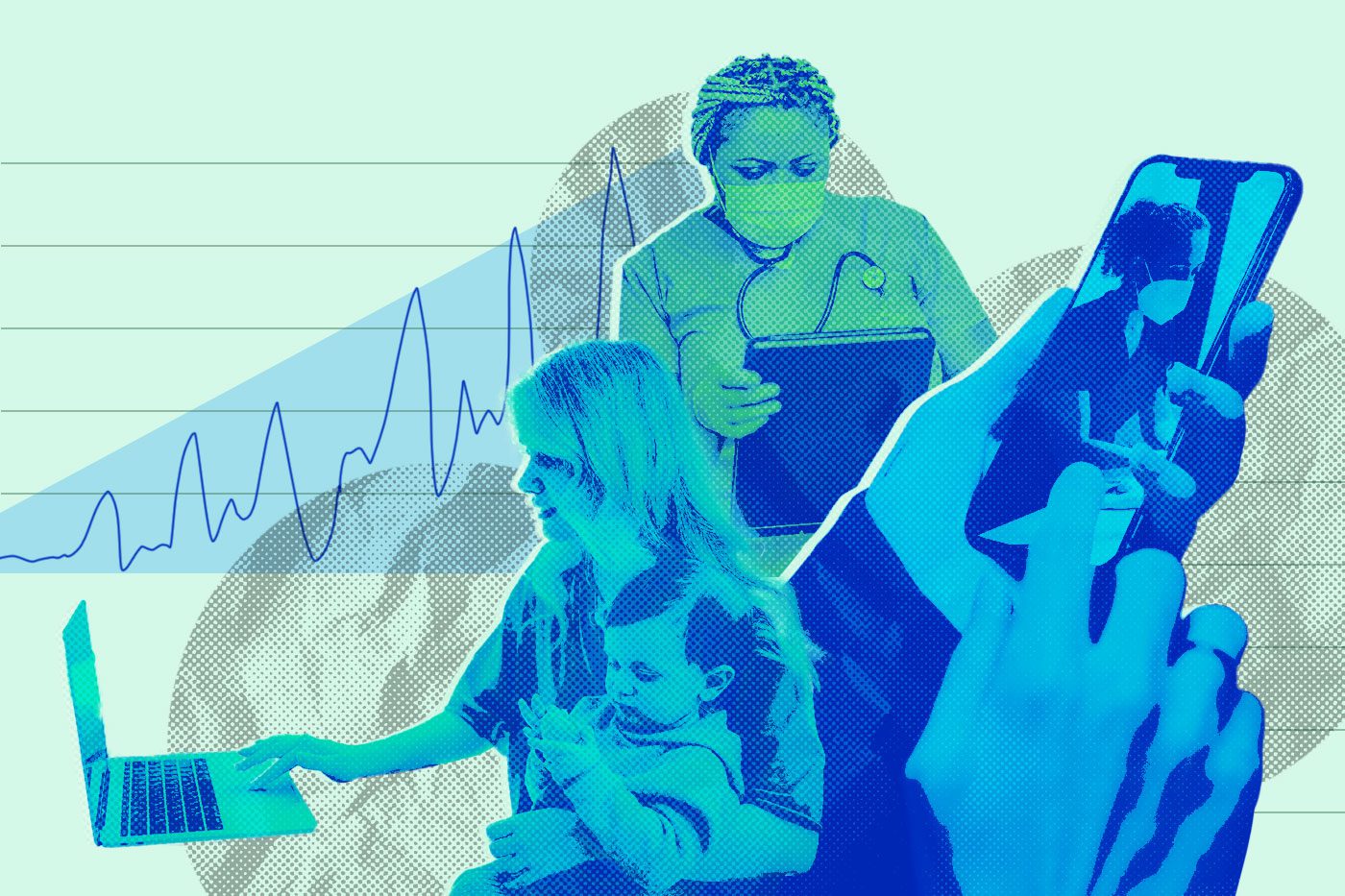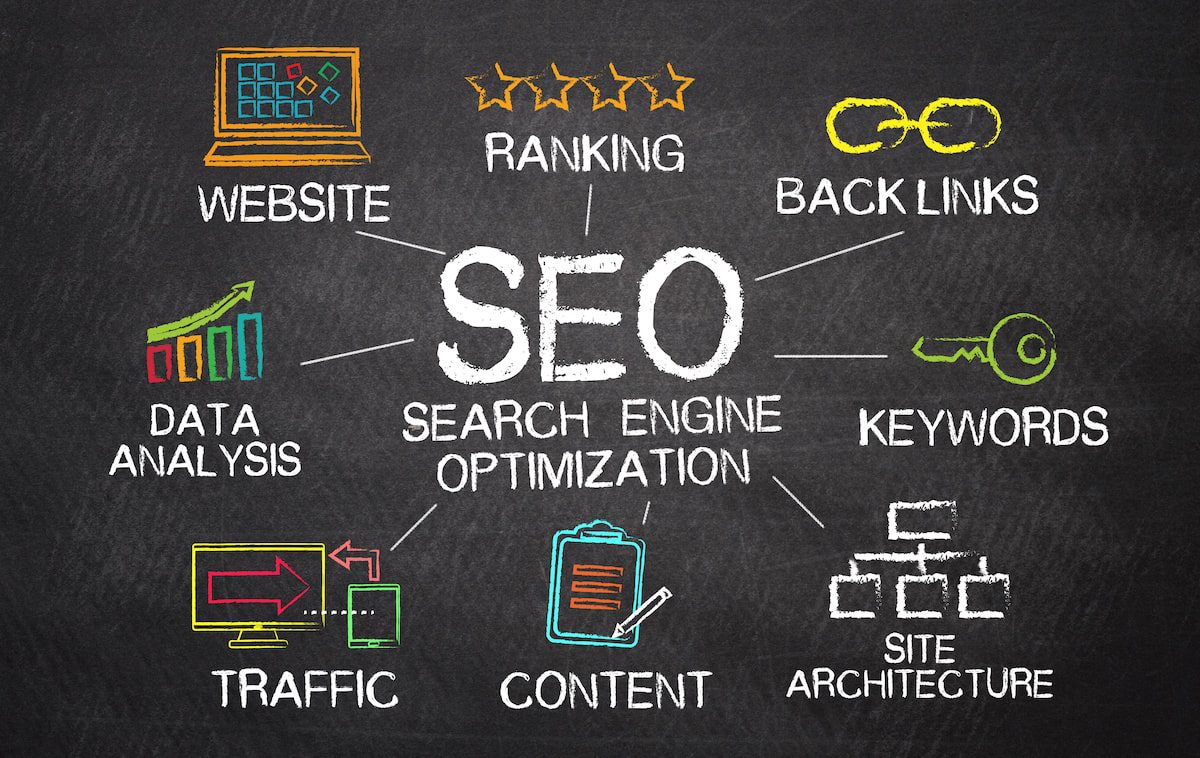Top Healthcare Digital Marketing Trends in 2024
- 1. Technical SEO for Medical Content
- 2. HIPAA Analytics Compliance
- 3. Talent Marketing
- 4. Video Content Marketing
- 5. Targeted Advertising
- 6. Personalized Email Marketing
- Healthcare Digital Marketing Essentials
- What is digital healthcare marketing?
- Why is digital marketing essential for the healthcare industry?
- How does healthcare marketing work?
- Work with a team that gets healthcare marketing
The healthcare marketing terrain is constantly evolving. Despite changing trends and the impact of generative AI, it’s still possible to make some predictions about its future.
Join us as we discuss what we expect from healthcare marketing in 2024, and why we think these will be the top trends to watch.

1. Technical SEO for Medical Content
Medical websites face unique challenges when it comes to SEO, due to the sensitive nature of the content and regulations. However, strong technical SEO is crucial for ensuring your website is accessible, trustworthy, and ranks well in search results.
Crawlability and Indexing
- Structured Data: Use schema markup to provide clear information about your practice, staff, services, and conditions treated. This helps search engines understand your content and display it accurately in rich snippets.
- XML Sitemap: Submit an updated XML sitemap to major search engines like Google and Bing. This helps them discover and index your pages efficiently.
- Robots.txt: Ensure your robots.txt file doesn’t block search engine crawlers from accessing important pages.
- Mobile-Friendliness: Make sure your website is mobile-responsive and offers a seamless experience across all devices. Google prioritizes mobile-friendly sites in search results.
Website Speed and Performance
- Page Speed Optimization: Minimize page load times by optimizing images, compressing files, and using a caching plugin. Faster loading pages improve user experience and SEO rankings.
- Server Response Time: Choose a reliable hosting provider with fast server response times. Slow servers can significantly impact your website’s performance and crawlability.
- Technical Audits: Regularly conduct technical audits using tools like Google Search Console and Screaming Frog to identify and fix any technical issues affecting your website.
Remember, medical SEO is complex. To make the most out of your technical SEO strategy, consider hiring an SEO specialist.

2. HIPAA Analytics Compliance
While healthcare providers are interested in understanding web visitor behavior, Google Analytics 4 (GA4) – and lots of other analytics tools – are not HIPAA compliant.
This limitation doesn’t mean healthcare orgs can never benefit from analytics, however. You can take some steps to try to avoid HIPAA issues with GA4 and other analytics tools. These workarounds include masking certain kinds of URLs (for instance, URS with a name that could indicate a user’s medical condition) as well as masking IP addresses.
Navigating HIPAA compliance and web analytics can be extremely challenging, but healthcare orgs can also benefit greatly from analytics tools. In order to stay compliant without the workarounds, you might consider working with an analytics tool that is designed for HIPAA compliance.
3. Talent Marketing
Staff shortages across the healthcare workforce have become a worldwide issue in recent years, an existing problem that was only exacerbated by the Covid-19 pandemic. As a result, many healthcare orgs are prioritizing staff recruitment as part of their marketing plans.
While we often associate content marketing with lead generation for customers or clients, in the current healthcare landscape, generating leads for new talent can be one of the best outcomes of your content marketing strategy. Building up career websites with informative and well-designed content, particularly in areas where there are shortages of qualified staff, can be a boon for talent recruitment. See this example from our client, Brooks Rehabilitation.

4. Video Content Marketing
Video content is everywhere. Effective healthcare marketing, as with other industries today, needs to include video content to keep up.
Fortunately, healthcare providers have multiple areas to draw from to create compelling video content. Impactful patient stories, employee experiences, and facility tours are just a few ways healthcare providers can leverage video content marketing to connect with both new and existing patients.
If your org has staff with specialized expertise and areas of research, consider having a physician or other specialist create explainer videos to demystify medical conditions, procedures, and treatment options. You could also leverage staff expertise with Q&A sessions that address common concerns, offer wellness tips, and provide other expert insights.
Video marketing can also help build both brand awareness and trust, which can drive new patients as well as new talent to your organization’s site. You can offer behind-the-scenes glimpses, virtual tours, and more to create a welcoming and familiar environment. Staff introductions on video will help both patients and potential new talent get to know the people behind your organization.
To make video content marketing most effective, cater your content to your specific audience, maintain high production quality, and optimize videos for search engines. By focusing on patient education, trust building, and improved experience, you can leverage video to deliver better care to your communities.
5. Targeted Advertising
Targeted advertising works great for large international healthcare organizations, but also for local hospitals. The ability to target ads to users in specific geographic locations can be especially beneficial to smaller-scale, local healthcare practices.
The first step to effectively using targeted ads is to identify your target audience. For healthcare orgs, the most important characteristic to include are:
- Demographics: Age, gender, income, location, etc.
- Health conditions: Specific diseases, risk factors, or medical needs.
- Life stages: Pregnant women, new parents, seniors, etc.
Once you’ve identified your ideal audience, use targeted ads to connect to the potential patients who would most benefit from the services you provide.
6. Personalized Email Marketing
Email has always been a strong channel for healthcare marketing – in no small part because most patients like to manage appointments and communications with healthcare professionals via email.
Healthcare organizations can leverage this communications channel to stay connected with patients and potential patients. Send targeted, personalized emails to patients with educational content, appointment reminders, promotional offers, and more.
If you’re not totally sold on the potential of generating appointments (and revenue) via email, check out this Big Sea case study – we helped one of our healthcare clients generate over $6000 with a single email newsletter.
Healthcare Digital Marketing Essentials
What is digital healthcare marketing?
Digital healthcare marketing is the use of online channels and strategies to reach and engage existing or potential patients. It can include a wide range of tactics, from creating informative and compelling website content, to targeted social media advertising, to managing scheduling and patient communications online.
One of the main aims of digital healthcare marketing is to attract new patients through increasing web traffic and improving search engine rankings. This is why an effective SEO strategy is key for digital healthcare marketing today.
Another key goal of digital healthcare marketing is improving the experience of current patients. Patients today want to access health information and schedule appointments online. Building a user-friendly and effective online presence allows healthcare providers to retain patients by making their online patient experience a positive one.
Why is digital marketing essential for the healthcare industry?
Almost everyone accesses information and services online today – whether they’re looking for their next food delivery or their next doctor’s appointment. As a result, healthcare providers need effective digital marketing in order to reach new patients, engage current ones, and connect to other healthcare stakeholders.
By understanding the goals, key channels, and benefits of digital marketing, healthcare providers can develop effective strategies to attract patients, build trust, and improve the overall patient experience.
How does healthcare marketing work?
Like any other marketing strategy, healthcare marketing involves understanding your target audience, crafting a compelling message, and choosing the right channels to reach them.
However, due to the sensitive nature of healthcare and the regulations involved, it has some unique aspects. Healthcare providers’ need to ensure their web presence and other marketing channels always comply with HIPAA and other regulations regarding privacy and data security.
Work with a team that gets healthcare marketing
Marketing trends may change, but one thing that doesn’t? Great partnerships. Does your organization need help navigating the evolving landscape of healthcare marketing and talent recruitment? Partner with an agency that helps healthcare orgs thrive. Contact us today to get started.

